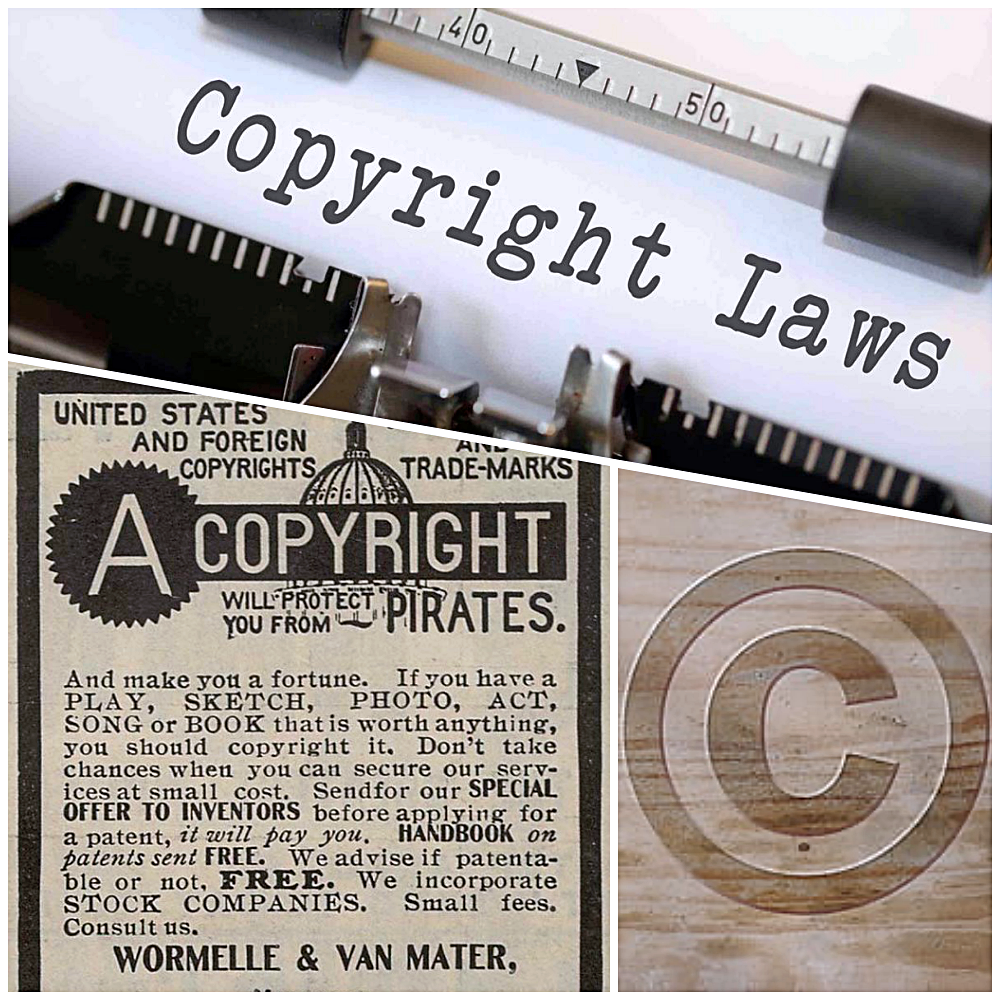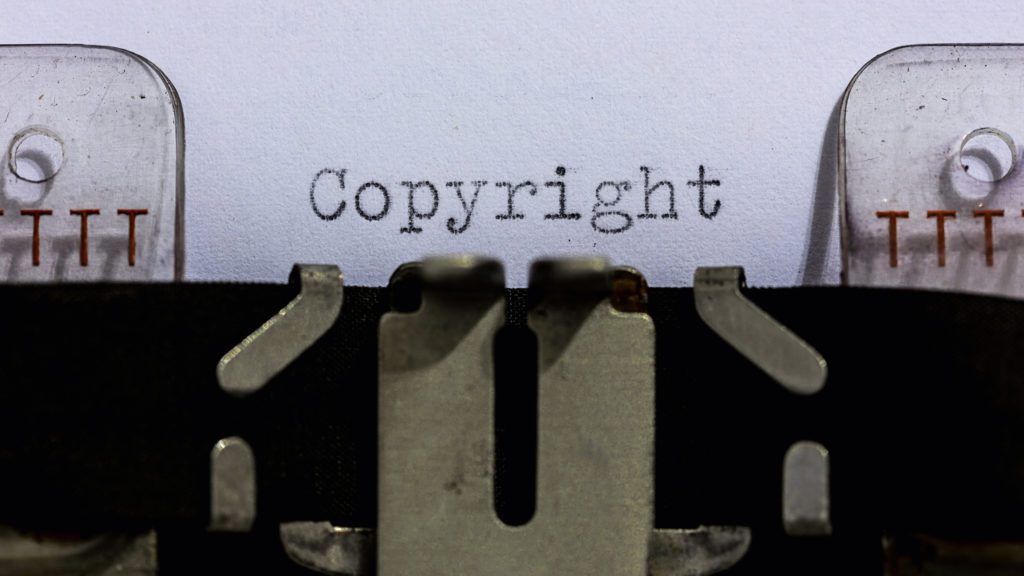Let’s Talk About Copyright: Do The Right Thing

In discussing newspapers, “Public Domain” refers to a publisher’s works not protected by those intellectual property laws. The public owns these works, and anyone can responsibly use public domain work without obtaining permission, but no one can ever “own it.”
When embarking upon a digitization project, careful consideration must be given to how you intend to provide access and what you can and cannot do under U.S. Copyright laws. You need to consider whether the publications are subject to copyright, whether you have permission to use the work, and whether the way you plan to use the materials falls within a copyright exception.
I will preface this like I always do when the topic of copyright arises: “I am not a lawyer.” Taking legal advice from me is similar to asking WebMD for a diagnosis….you will want to seek a second opinion.
That being said, you do not need a lawyer to tell you that copyright holders have rights regarding their intellectual property. You need to respect those rights and not infringe upon them when you provide access to digitized newspapers or other materials protected by copyright law.
Remember, partnerships matter. Developing a relationship with the right holder and seeking their permission to use any of their works not in the public domain should be explored. This is their property and remains so until their content enters the public domain. It remains theirs to dictate how, when, and where it can be used.
What is copyright?
United States copyright laws apply protection to the intellectual property of a publisher, individual author, or artist.
What is “public domain”?
In discussing newspapers, “Public Domain” refers to a publisher’s works not protected by those intellectual property laws. The public owns these works, and anyone can responsibly use public domain work without obtaining permission, but no one can ever “own it.”
It is clearly in the public domain if:
The copyright has expired (before 1929 or more than 95 years from publication)
However, it MIGHT BE in the public domain if:
Although copyright laws are well defined, there is an area of gray between 1924 and 1977. During this period, some publications were printed without notice of copyright or in compliance with the day’s copyright laws.
The other way newspaper content has become public domain is if the copyright owner has failed to comply with copyright renewal rules (1923-1989).
If it was published before 1978 and did not have the © copyright symbol printed in the publication, it could fall within the public domain. Between 1924 and 1977, many newspapers were published without notice of copyright or did not register with the U.S. Copyright Office. Therefore, you will want to do your due diligence on these titles before providing free digital access to this content.
When Does New Content Enter The Public Domain?
Copyright was “frozen” at 1923 for the last 20 years.
On January 1st, 2019, new content entered the public domain for the first time since 1998, making 1924 content available.
On January 1st, 2020, content from 1925 became public domain, and every year since (and every year going forward), a new year’s worth of content is free to use without restriction.
Copyright Exceptions for Libraries, Archives, & Museums
Are there copyright exceptions for libraries, archives, or museums?
The answer to this question is a little more complicated. However, it is understood that when it comes to providing access to digitized content, there are exemptions for these institutions IF specific and defined guidelines are followed.
First, these exceptions apply only to libraries, museums, and archives that are open to the public or to unaffiliated researchers in a specialized field.
Title 17, section 108 of the U.S. Code permits libraries and archives to use copyrighted material in specific ways. These provisions are called “limitations” or “exceptions” because they limit the exclusive rights of copyright owners. In specified circumstances, they exempt libraries, archives, and museums from obtaining permission from copyright holders.
The critical thing to remember about these exemptions is that the digitized content MUST be used in the same manner, method, or intent as the original.
To provide access to newspaper content that is not clearly residing in the public domain, the qualifying institution MUST ensure that these publications are currently in the library or museum collections. This could either be the microfilmed copy in your holdings or hard copies of the papers.
The other important thing to understand is that any copy made in digital format may not be made available to the public in that format outside the library premises. Just like the microfilm in a library’s collection, the newspapers not in the public domain must be restricted to use from within your physical location only. In practice, a restricted digital archive will be used in the same “manner, method, or intent” as using the physical materials, essentially becoming a “digital” microfilm reader.

Can We Help?
Although copyright laws are well defined, there is an area of gray between 1924 and 1977. During this period, some publications were printed without notice of copyright or in compliance with the day’s copyright laws.


